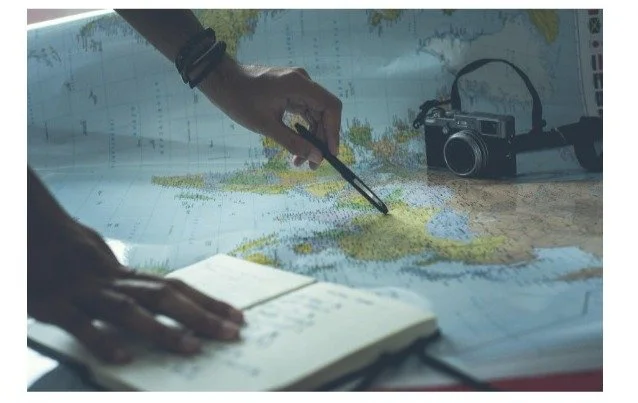How To Pack For An International Move Without Stress
International moves. The words themselves can evoke visions of endless boxes, tangled tape, and feeling overwhelmed. It’s understandable; the sheer scale of preparing for your visas and customs regulations to deciding what to bring and what to leave behind can feel daunting. But there’s a way to approach the packing process without succumbing to complete chaos.
This post offers practical strategies for navigating the complexities of packing for an international move. From establishing a comprehensive inventory to employing efficient packing techniques, these tips can transform a potentially stressful experience into a much more manageable project.
1. Plan and Organize Early
An international move requires more preparation than a local move, as there are additional logistical challenges, customs regulations, and long-distance shipping considerations. Plan at least two to three months in advance to stay organized and reduce stress. One of the first steps is to research international removalists specializing in overseas relocations, as they can provide valuable guidance on packing, shipping, and customs requirements. Additionally, create a detailed checklist that includes:
Essential documents (passports, visas, permits)
Moving timeline
Necessary supplies (cardboard boxes, bubble wrap, tape)
A categorized inventory of items you plan to take
A well-thought-out plan will help prevent last-minute chaos and ensure a smoother transition to your new home abroad.
2. Research Shipping and Customs Regulations
Different countries have specific regulations on what can be imported. Research customs restrictions, prohibited items, and necessary documentation. If you’re using a professional moving company, they can guide you on these rules. Additionally, choose the best shipping method based on your needs:
Air Freight: Faster but expensive
Sea Freight: More affordable but takes longer
Land Transport: Viable if moving between neighboring countries
Additionally, working with an experienced international moving company can help you navigate customs paperwork and avoid common pitfalls, ensuring a smoother transition.
3. Declutter and Downsize
International shipping costs can be quite expensive, so you must be selective about what you take with you. Moving abroad presents the perfect opportunity to declutter and downsize your possessions. Go through each room in your home and categorize your items into four groups: keep, donate, sell, or discard. If an item hasn’t been used in the past year, it’s probably not worth shipping. The fewer items you bring, the easier and more cost-effective your move will be. Decluttering now will make unpacking and settling into your new home much more straightforward.
4. Use High-Quality Packing Materials
International moves involve long transit times and multiple handling points, making investing in durable packing materials essential. Unlike local moves, where items are only in transit for a few hours, your belongings may endure weeks or months of travel. Sturdy corrugated boxes, high-quality bubble wrap, packing peanuts, and reinforced packing tape can help protect your valuables. Vacuum-sealed bags or packing cubes can be a great space-saving solution for clothing and soft items. When packing fragile items like glassware, electronics, or artwork, use extra padding and ensure they are securely wrapped.
5. Pack an Essentials Box
Prepare a separate essentials box that contains the following:
Important documents (passport, visa, medical records)
Medications and first aid supplies
Basic toiletries and a change of clothes
Chargers, adapters, and necessary electronics
Snacks and travel essentials
This ensures you have the necessary items upon arrival, reducing stress while waiting for your shipment.
6. Protect Valuable and Fragile Items
Items such as electronics, jewelry, glassware, and family heirlooms require extra care when packing for an international move. Consider using their original packaging, specifically designed for their protection. If that’s not an option, wrap delicate items in anti-static bubble wrap and use dividers to prevent movement within the box. For added security, take photos of high-value items before packing them. This can prove the condition if you need to file an insurance claim. If an item is particularly valuable, carrying it with you in your luggage may be safer than shipping it.
7. Digitize Important Documents
Losing critical documents during an international move can lead to serious complications. To prevent this, scan and store digital copies of all essential documents, including passports, visas, birth certificates, insurance policies, and financial records. Save them in multiple locations, such as a secure cloud storage service and a USB drive, to ensure easy access in case of loss or theft. Having digital backups can also be helpful when dealing with international authorities or setting up services in your new country. Some institutions may require official documents for verification, and having them readily available in digital form can save time and effort.
8. Prepare for Unpacking at Your Destination
Once your shipment arrives, resist the urge to unpack everything at once. Instead, start with the essentials and gradually move on to larger items. Assemble furniture first, then focus on organizing different rooms one at a time. This approach prevents unnecessary clutter and helps you settle in comfortably. Additionally, give yourself time to adjust to your new surroundings before unpacking. Take breaks to explore your new neighborhood, set up necessary utilities, and familiarize yourself with local customs.
Conclusion
An international move is a major life change, but with the right approach, it doesn’t have to be stressful. You can ensure a seamless transition by planning early, decluttering efficiently, using high-quality packing materials, and hiring professionals. Staying organized and taking proactive steps will reduce stress and help you embrace the excitement of starting a new chapter in a foreign country.






